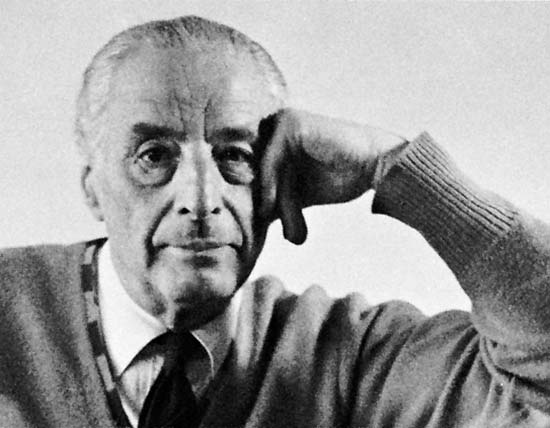Toch, Ernst
Austrian composer
born Dec. 7, 1887, Vienna, Austria
died Oct. 1, 1964, Los Angeles, Calif., U.S.
 composer whose works, noted for their perfection of form, fused elements from the classical tradition with modern musical ideas. Although he rarely carried innovation to great lengths, he was considered a leader of the avant-garde composers in pre-Nazi Germany and, like many of them, went into exile when Adolf Hitler came to power. A pianist of concert stature, Toch wrote for that instrument sonatas, études, and a concerto (1926)—a considerable part of his creative output.
composer whose works, noted for their perfection of form, fused elements from the classical tradition with modern musical ideas. Although he rarely carried innovation to great lengths, he was considered a leader of the avant-garde composers in pre-Nazi Germany and, like many of them, went into exile when Adolf Hitler came to power. A pianist of concert stature, Toch wrote for that instrument sonatas, études, and a concerto (1926)—a considerable part of his creative output.In 1909 Toch won the Mozart Prize, which enabled him to study piano at Frankfurt am Main. As a composer he was self-taught. From 1929 to 1933 he taught piano and composition in Berlin. He went on a concert tour of the United States in 1932 and taught composition at the New School for Social Research in New York from 1934 to 1936 and at the University of Southern California in Los Angeles from 1937 to 1948. After that he taught privately and made several European concert tours. He lived in Switzerland from 1950 to 1958, then spent the remainder of his life in Los Angeles. Toch was a teacher of considerable influence; a number of his students, including André Previn, became eminent composers.
His orchestral works are often of a humorous character, notably the Bunte Suite (1929). In spite of the largely traditional nature of his style, he experimented at times with new devices, as in his Gesprochene Musik (Spoken Music) for spoken voices (1930). He wrote chamber music, several chamber operas, and music for films. Of his five symphonies, the Third (1956) won a Pulitzer Prize. He published two theoretical works, Melodielehre (1923; “Melodic Theory”) and The Shaping Forces in Music (1948).
- Hoffman, Dustin
- Hoffman, Malvina
- Hoffmann, E.T.A.
- Hoffmann, Heinrich
- Hoffmann, Josef
- Hoffmann, Max
- Hoffmann, Roald
- Hoffmann von Fallersleben, August Heinrich
- Hoffman, Paul G.
- Hoffman, Philip Seymour
- Hoffman, Samuel Kurtz
- Hofmann, August Wilhelm von
- Hofmann, Gert
- Hofmann, Hans
- Hofmann, Josef Casimir
- Hofmann, Melchior
- Hofmannsthal, Hugo von
- Hofmannswaldau, Christian Hofmann von
- Hofmeister, Sebastian
- Hofmeister, Wilhelm
- Hofmeyr, Jan
- Hofsjökull
- Hofstadter, Richard
- Hofstadter, Robert
- Hofstra University